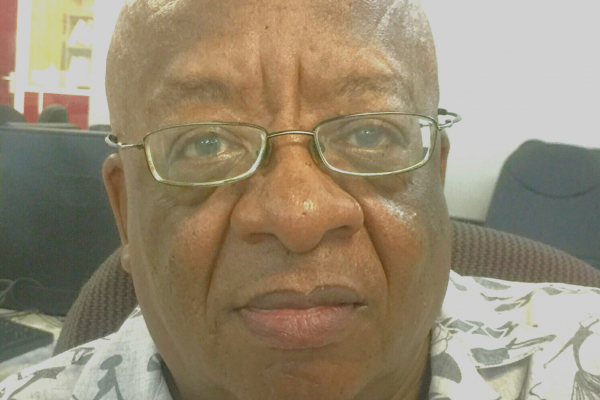
Now and then you and me have an, as they say in Latin, annus horribilis (horrible year).
By CONWAY TUTANI

In that vein, 2017 is not ending soon and quick enough for Robert Mugabe and Grace, his wife. Everything that could go wrong has gone wrong for them.
The year began with First Lady Grace Mugabe (now former) pulling her husband, President Robert Mugabe (ditto former), along as she ran the show with virtually everyone in the ruling Zanu PF party and government at her beck and call.
Her imperiousness was a throwback to the age of aristocracy. And she looked pleased with herself that she had finally arrived, that she had finally made it when the path had been cleared for her to take over as party leader and State President after her husband fired then Vice-President Emmerson Mnangagwa on November 6, 2017. It was now about the rise and rise of Grace.
As they say, the last minute is always dangerous. Grace had one hand on the throne when the Zimbabwe Defence Forces (ZDF), led by General Constantino Chiwenga (pictured), began what it called “Operation Restore Legacy” and put her and her husband under house arrest, commencing the process that led to Mugabe’s resignation within a matter of days. The anger against Mugabe, which had been suppressed for decades, finally boiled over as people tore down everything associated with him, including road signs, as they called for his ouster in countrywide marches.
Thus, to most people, in contrast to the Mugabes, 2017 has turned out to be an annus mirabilis (a wonderful year), showing how Mugabe and Grace had become detached from the people.
- Chamisa under fire over US$120K donation
- Mavhunga puts DeMbare into Chibuku quarterfinals
- Pension funds bet on Cabora Bassa oilfields
- Councils defy govt fire tender directive
Keep Reading
Granted it is not easy in a country as polarised as Zimbabwe has been to question authority in a constructive way, we should still try. The basic step is knowing that government is not the State; government is merely one component of the State, whose other components are the ordinary people, associations like trade unions, football clubs, religious groups, political parties and the military in their own right. So we need to factor in all those components to avert sectarian tendencies.
The Shiite majority in Iraq is paying heavily in bombings against them for marginalising the Sunni minority, which ruled and controlled the army under Saddam Hussein. Democracy is not only about numerical strength, but balancing various constituents of the State. In Zimbabwe, Ndebeles make up 15% of the population, but their share in government is much of the time above that taking into consideration that their political leverage is higher or equal to that of some Shona subgroupings. That all the mainstream political parties have a Ndebele deputising a Shona leader is a clear acknowledgement of the political reality that you have to have the Ndebele component in order to carry the day.
So it is with the military factor. That is why there is acknowledgement even in liberal democracies in the West of the military-industrial complex — the military establishment and those industries producing military materiel, viewed together, as exerting a powerful influence on foreign and economic policy.
I am not advocating militarism, but that the opposition ought to know that they cannot effectively govern without that military component of the State as Mugabe found out to his cost. We need to be clear that the military is not a job, but a way of life. Governments come and go, but the military establishment remains. Those inclined to mock this suggestion should note that the military is perhaps now among most respected institutions in Zimbabwe.
And we should be careful about some characters in civil society who want confrontation to be perpetuated because they earn their livelihoods from it. They have a vested interest in it. Without crises, they are out of a job.
In addition to that, we have a serious problem of straight-line thinking in this country, often blinding some so-called experts to inevitable and obvious solutions, with some still raving mad that Mugabe should have been constitutionally removed. If you believe that, then you can believe anything. We need to apply “reductio ad absurdum” on them — a method of proving that an argument or theory is false by showing that its logical consequence is absurd or contradictory. They are, by implication, saying we should return to the pre-November 14 situation before the military intervention and start from there.
Isn’t that an absurd and contradictory suggestion going by the circumstances which led to the military intervention in the first place?
Equally, we don’t need triumphalism from Zanu PF and the military itself. Says historian Simon Schama: “Jews and Palestinians have to share the country and there is no way out of that”, condemning what he calls “the glee of hatred” or “the joy of hatred”, which Mugabe was notorious for.
Said Mashonaland West war veterans chairperson Cornelius Muoni this week: “Please stop this retrogressive mentality which portrays someone with a different view as an enemy. This ‘Pasi neMDC-T’ (Down with MDC-T), ‘Pasi naMorgan Tsvangirai’ (Down with Morgan Tsvangirai) doesn’t increase your membership.”
This is what is needed to make Mugabe’s removal meaningful and worthwhile. This has been an ignominious period of Zimbabwean history that many people want to see buried forever. It’s not about the elections only, but also the work that needs to be done before and after the elections — not Mugabe’s scorched-earth policies of winning at any and all costs.
That said, acclaimed United States news magazine, TIME, defines “Person of the Year” as “a person, group, an idea, or an object that ‘for better or for worse . . . has done the most to influence the events of the year’.”
Well, in the case of Zimbabwe, the Person of the Year is none other than ZDF Commander General Constantino Guveya Dominic Nyikadzino Chiwenga.
Happy Unity Day, Zimbabwe! Wish you annus mirabilis!
lConway Nkumbuzo Tutani is a Harare-based columnist. Email: [email protected]











